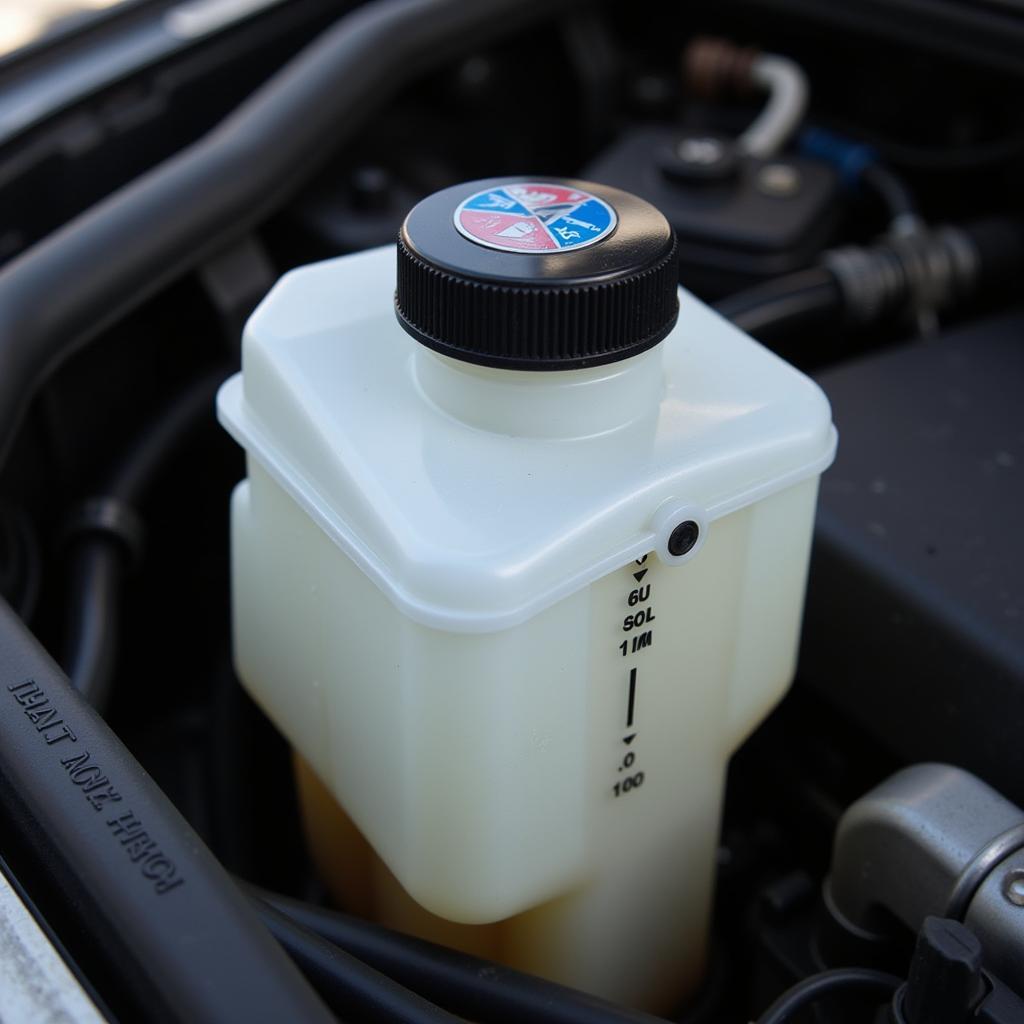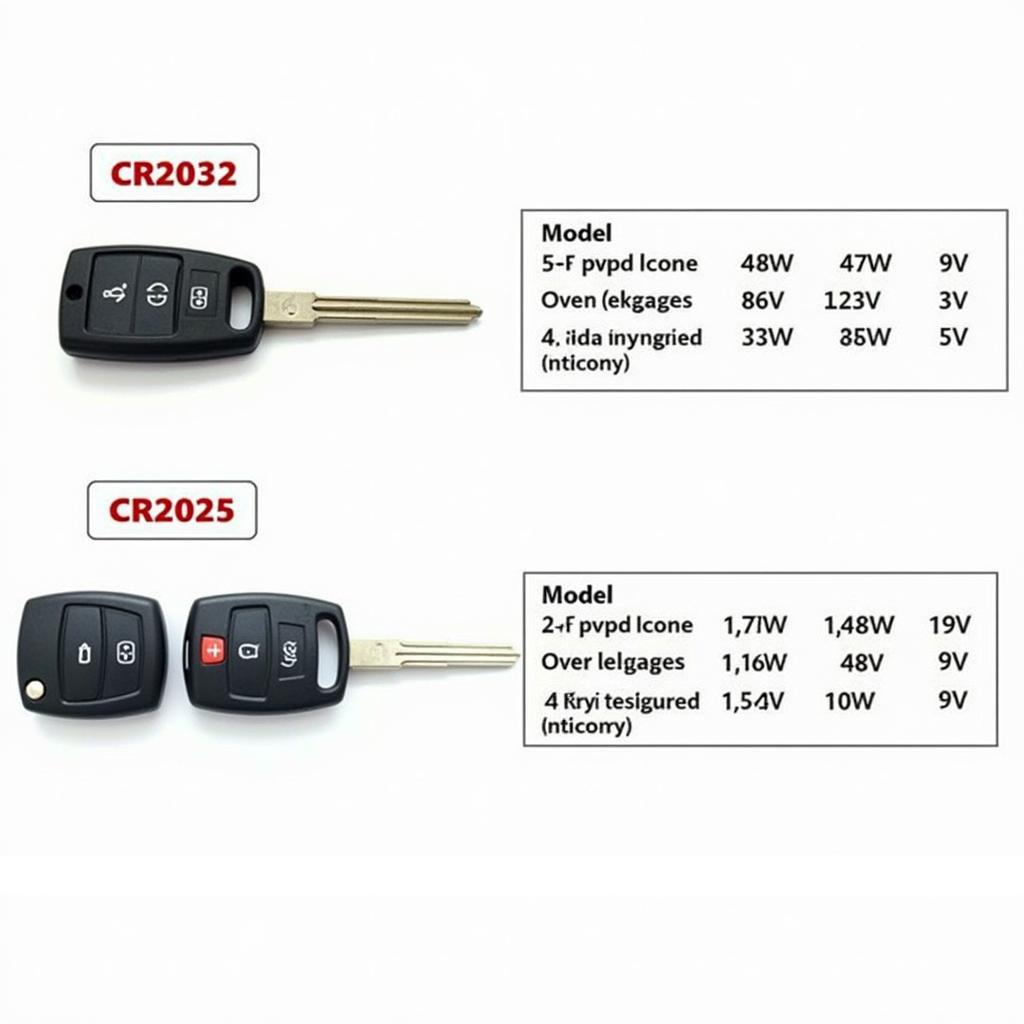A “BMW brake fluid warn” light flashing on your dashboard is a nerve-wracking experience, especially if you’re unfamiliar with its implications. This warning indicates a potential issue with your BMW’s braking system, demanding immediate attention to ensure your safety on the road. This article serves as a comprehensive guide to understanding the BMW brake fluid warning, its common causes, and the steps you can take to address them.
Deciphering the BMW Brake Fluid Warning
The brake fluid warning light, typically depicted as a circle surrounded by parentheses with an exclamation mark (!) in the center, illuminates when the system detects a problem. It signifies either low brake fluid levels or a fault within the braking system itself. Ignoring this warning can lead to reduced braking performance, posing a serious safety hazard.
Common Causes of the “BMW Brake Fluid Warn” Light
1. Low Brake Fluid Level
The most common culprit behind the “BMW brake fluid warn” light is a low brake fluid level. As brake pads wear down over time, the brake calipers require more fluid to engage the brakes. If the fluid level drops below the minimum threshold, the warning light is triggered.
 Low Brake Fluid Reservoir in a BMW
Low Brake Fluid Reservoir in a BMW
2. Worn Brake Pads
While not directly related to the brake fluid itself, worn brake pads indirectly contribute to a low fluid level. As the brake pads wear down, the brake calipers need to extend further to apply the same braking force. This extension requires more brake fluid, eventually leading to a drop in the reservoir level.
3. Brake Fluid Leak
A leak within the braking system can also cause the “BMW brake fluid warn” light to illuminate. Brake fluid leaks can occur due to damaged brake lines, worn-out seals in the calipers or master cylinder, or a faulty brake hose.
What to Do When Your BMW Brake Fluid Light Comes On
1. Check the Brake Fluid Level
If the “BMW brake fluid warn” light illuminates, safely park your vehicle and inspect the brake fluid level in the reservoir. Refer to your owner’s manual for the location of the reservoir and the recommended brake fluid type.
2. Add Brake Fluid (If Necessary)
If the fluid level is low, carefully add the correct type of brake fluid to the reservoir, bringing it up to the maximum mark. Avoid overfilling, as this can cause damage.
3. Inspect for Leaks
Thoroughly examine the area around the master cylinder, brake lines, hoses, and calipers for any signs of leaks. Look for wet spots, drips, or puddles of brake fluid.
4. Seek Professional Help
If you notice a significant drop in brake fluid level, identify a leak, or experience any changes in brake pedal feel, it’s crucial to seek professional assistance immediately. Driving with a compromised braking system is extremely dangerous.
Remote Software Solutions for Brake Issues
In some instances, the “BMW brake fluid warn” light might be triggered by software glitches or sensor malfunctions. As a specialist in remote automotive electrical engineering, I offer diagnostic services, programming, and remote software installations to rectify such issues. By connecting to your vehicle remotely, I can diagnose the problem and potentially resolve it without the need for a physical visit. This approach saves you time and effort, ensuring your BMW’s braking system operates flawlessly.
Conclusion
Addressing a “BMW brake fluid warn” light promptly is essential for your safety and the optimal performance of your vehicle. While low brake fluid levels might seem like a minor inconvenience, they can be a symptom of a more serious underlying issue within the braking system. Regular maintenance, including brake fluid flushes and inspections, is crucial to prevent such problems and ensure the longevity of your BMW’s braking components. Remember, when it comes to brakes, it’s always best to err on the side of caution and seek professional help if you encounter any warning signs.


